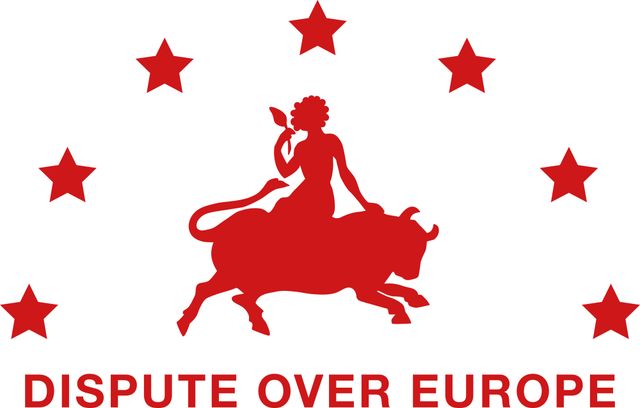Congress
Dispute over Europe
Languages: English - French - German simultaneous translation
Take a chance with more Europe - the EU needs dedicated citizens! This is the leading theme of the inaugural congress "Dispute over Europe" to be held on the 2nd of May, 2014 at Haus der Kulturen der Welt in Berlin. In times when Europe is virtually absent from national political agendas, when problems ahead are discussed by political leaders behind closed doors, and when a growing number of populist parties gain influence on public opinion, we need to give Europe, and all its controversies, a new space. The doubts and objections of the citizens deserve hearing and should not be left to the populists or to the exclusivity of administrative elites. The objective of the congress is hence to establish a culture of disputing the problems and potentials of Europe today — in public, with citizens, intellectuals, and politicians, and in collaboration with a network of likeminded initiatives. We are convinced that appeasement and evocation do not help Europe get any further. What we need is an open and public discourse. The congress will be continued on September 18 and 19, 2014 — focusing on the results of the European Parliament elections.
Program
14:00 - 14:15 h Welcome Ulrich Schreiber / Jan Macháček
14:15 - 16:15 h The idea of Europe —next generation
What idea of Europe do young people have today? Involving the 'next generation' of Europeans in a discussion about their views, experiences and expectations is a crucial element in the 'Dispute over Europe' agenda. Unemployment and a lack of identification with European institutions are not the only concerns young people have today. What they miss is an open and sincere discussion about pressing questions with(in) Europe. But the 'next generation' is also optimistic – for there exists a sense of mutual responsibility in the promotion of social values, fueled by a strong disposition to communicate across borders. A group of dedicated, young Europeans will engage in a critical debate about their visions of contemporary and future Europe.
Speakers Hassaan Bin Shaheen / Christian Felgenhauer / Carmela Negrete Navarro / Sonja Katharina Schiffers / Daniel Tkatch
Chair Isabell Hoffmann / Nina Jurisch
16:15 – 16:45 h Coffee Break
16:45 – 17:00 h Introduction by Peter Schneider
17:00 – 17:20 h Keynote: Héctor Abad on Europe as a universal form of civilisation
Héctor Abad Faciolince who fled his hometown Medellín from the Colombian civil war into exile in Italy, and was a Fellow of the German Academic Exchange Service (DAAD) in 2006, criticizes Europeans for subjecting everything people dream of in the Third World to negotiation: the unification of the continent, civic responsibility, tolerance and democracy.
17:20 – 19:20 h The idea of Europe in our time
Contemporary Europe represents a unique model of civilization that is acknowledged and admired in large parts of the non-European world. After centuries of wars, imperialistic and totalitarian obliquities, Europe has pledged itself to the legacy of the Enlightenment — inalienable human and civil rights, separation of church and state, and socially moderated capitalism. Nowhere in the world coexists a comparable variety of democratically constituted cultures. Yet, the exemplary function of this European paragon for threshold countries (as recent events in the Ukraine have shown) is hardly recognized in Europe itself. Are Europeans squandering the European project and its hopes and values due to indifference, egotism and detachment? What is to be done to defend the European model against impending hazards from both inside and outside? How can Europe live up to its responsibilities in the world?
Dispute Camille de Toledo / Karl Schlögel Discussants Hans-Christoph Buch / Necla Kelek / Ivan Krastev / Thomas Rietzschel
Chair Wolfgang Herles
19:20 – 19:40 h Break
19:40 – 20:50 h Ukraine: the idea of Europe between east and west
There is a roughly drawn geopolitical map, according to which the Ukraine is quasi naturally located in proximity to Russia and its political sphere of influence. The people in the Maidan did not adhere to this map when they claimed their freedom and turned toward Europe. Moreover, they did not see themselves as the “near abroad” that ought to maintain a certain propinquity to the Kremlin. Quite to the contrary, they stood up for their orientation toward Europe while disposing of a corrupt regime whose closeness could have served as an embarrassment to Putin, and whose fate as an admonition. However, the perceived empire refuses to acknowledge this and strikes back. The Ukraine’s European contingency has been declared a provocation toward Russia, endangering geopolitical stability. Should a yearning for democracy and self determination be submitted to geopolitical axioms? Hasn’t it already been proved in 1989 that systems enforced by violence and diktats are unstable in the long run? Is the Ukraine still prone to Russian kindling in the east? Or is there a nation with new allegiances in the making, originating from the Maidan? And finally, will Europe fail on or grow with the challenges that are posed by the Crimean crisis? Will it reflect on the nature of its political community? And will Russia be able to adopt the European idea or will it keep up its geopolitical zero-sum game?
Speakers Ivan Krastev / Karl Schlögel Discussants Jakob Augstein / Andreij Kurkov / Jurko Prochasko
Chair Frank Herterich
20:50 - 21:00 h Summary Joachim Fritz-Vannahme
Idea and InitiativeHans Christoph Buch / Daniel Cohn-Bendit / Ulrike Guérot / Frank Herterich, Nina Jurisch / Steffen Noack / Peter Schneider / Ulrich Schreiber
The congress »Dispute over Europe« is an event of the Peter-Weiss-Stiftung für Kunst und Politik in cooperation with the Bertelsmann Stiftung, the Allianz Kulturstiftung, the BMW Stiftung Herbert Quandt and the Václav Havel Library. It is supported by the Auswärtiges Amt.
Funded by:
![]()
![]()
